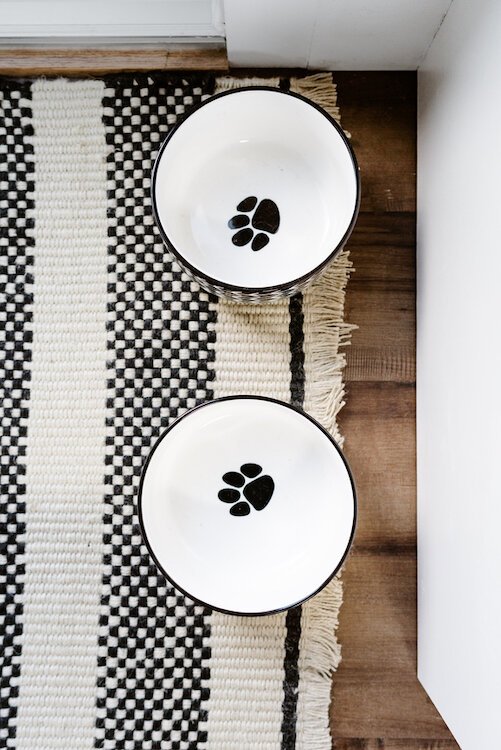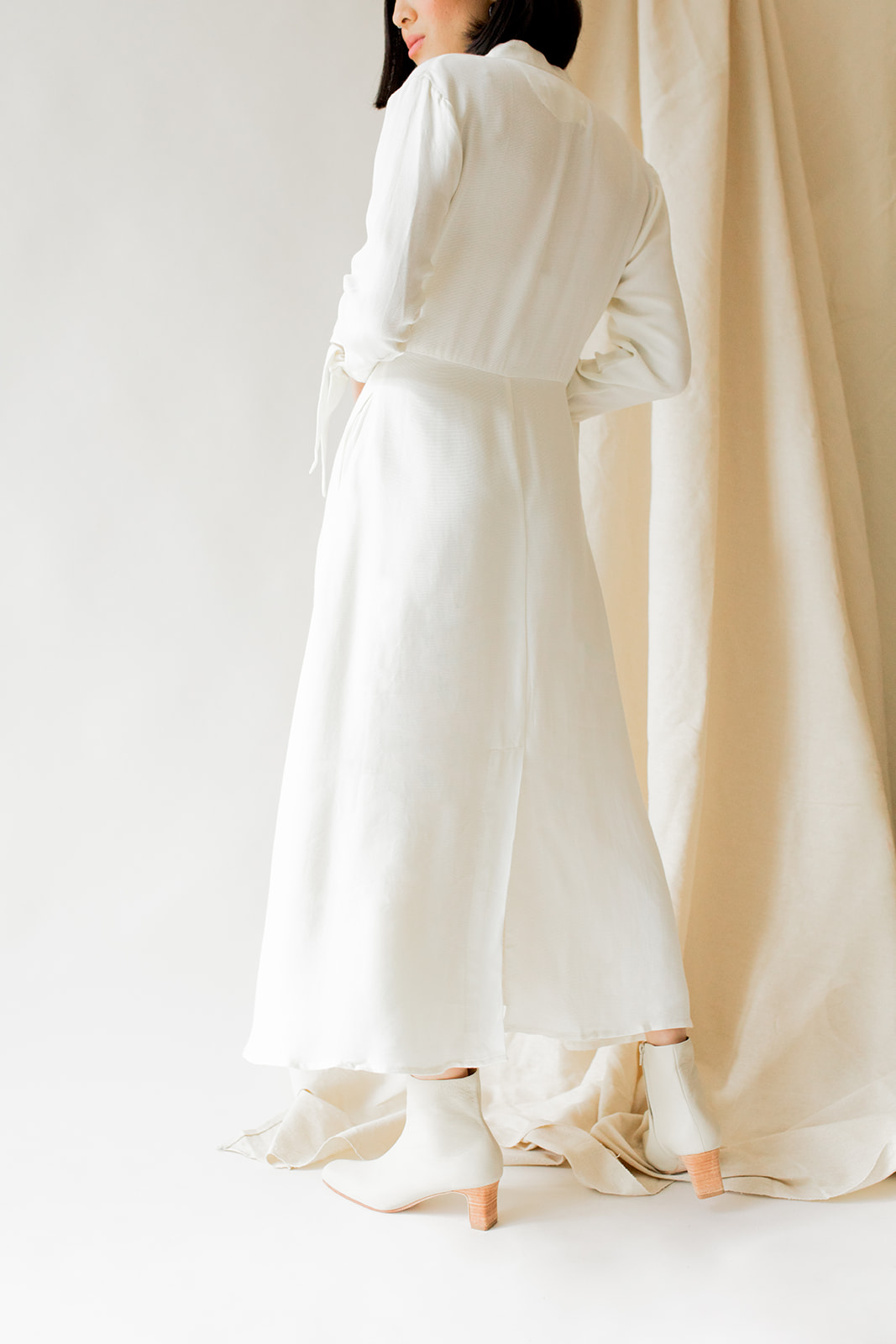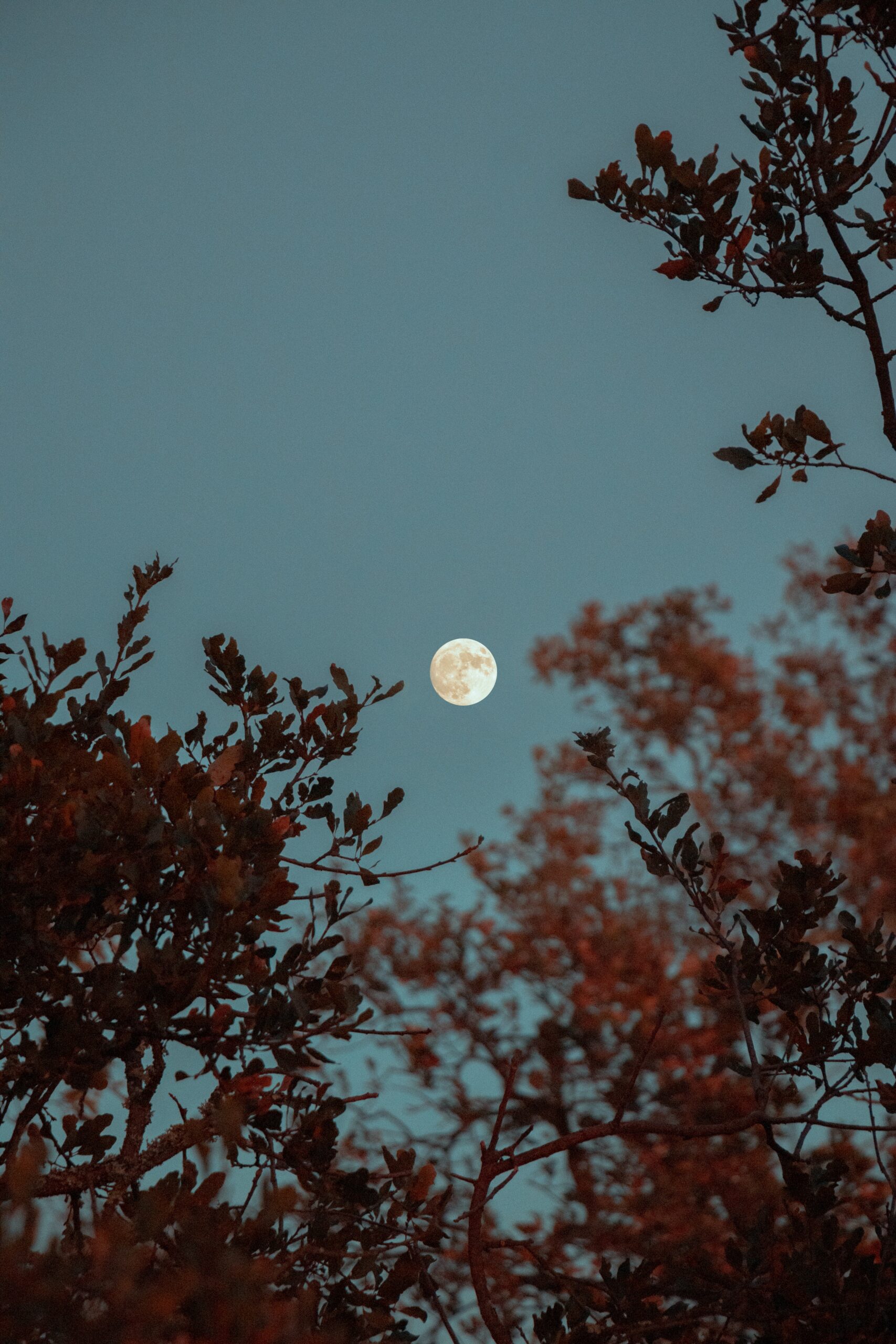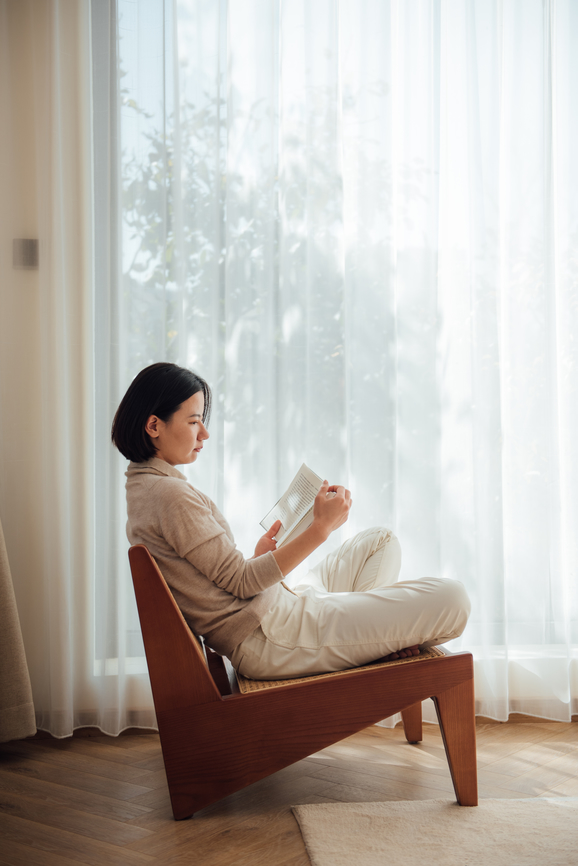A Moroccan tray sits on my kitchen counter, a little oasis dedicated solely to the morning ritual of coffee. On it sits my Frieling Double-Walled Stainless Steel French Press, and a small brass bowl to hold my measuring spoon. I keep my beans in an airtight container in my pantry to protect from light, heat, and moisture.
“Mycotoxins are toxic compounds formed by mold.”
I care about the coffee process and the morning ritual of brewing a cup, so it came as a surprise when I recently realized that despite all my efforts to craft the perfect cup of coffee, I have still been drinking mycotoxins.
Mycotoxins are toxic compounds formed by mold. High levels of mycotoxins in the body result in mold poisoning, which can manifest in a range of short- and long-term side effects such as nausea, skin inflammation, GI issues, chronic exhaustion, sinus infections, cold and flu-like symptoms, immune deficiency, and cancer.
On the one hand, we are regularly exposed to trace amounts of mycotoxins in all kinds of food sources, including cereal, alcohol, dried fruit, peanut butter, and nuts, and the liver does a great job detoxifying these things from our bodies; on the other hand, why expose yourself to potential carcinogens if you don’t have to?
“What you put in your body affects how you feel on the daily, and you are WORTH feeling good.”
What you put in your body affects how you feel on the daily, and you are WORTH feeling good. So here are five mold- and mycotoxin-free coffee brands to start your day with.
A couple other quick tips: Drink organic (coffee beans are one of the most pesticide-laden crops in the world), drink caffeinated (caffeine helps kill mycotoxins), and store your coffee in a dry, cool place. Here is how to ensure your coffee is mold and toxin-free.
1. Clean Coffee
Beans Sourced From | Papua New Guinea Highlands roast is small-batch, single origin, estate-grown on volcanic soil at over 5,200 feet above sea level/ Honduran El Jaguar roast grown on an organic farming collective
Certifications | CDFA multi-residue screening and verified against over 150+ toxins
Price | $15 for 12 oz Papua New Guinea or Honduran El Jaguar ground or whole bean bag
Clean Coffee hand-selects and hand-sorts green beans that are then washed three times and sun-dried before roasting at a precise temperature. The beans are sourced from Papua New Guinea, an area of the world still relatively untouched by industrial pollution. Everything runs through a 4-point Purity Process: agrichemical and toxin-free, low in acid for PH balance (5.31 PH, similar to rainwater), and rich in antioxidant CGA (a primary polyphenol with many scientifically proven health benefits). No pesticides, fungicides, mycotoxins, heavy metals, or agrichemicals, here! Just a simple cup of, well, clean coffee.
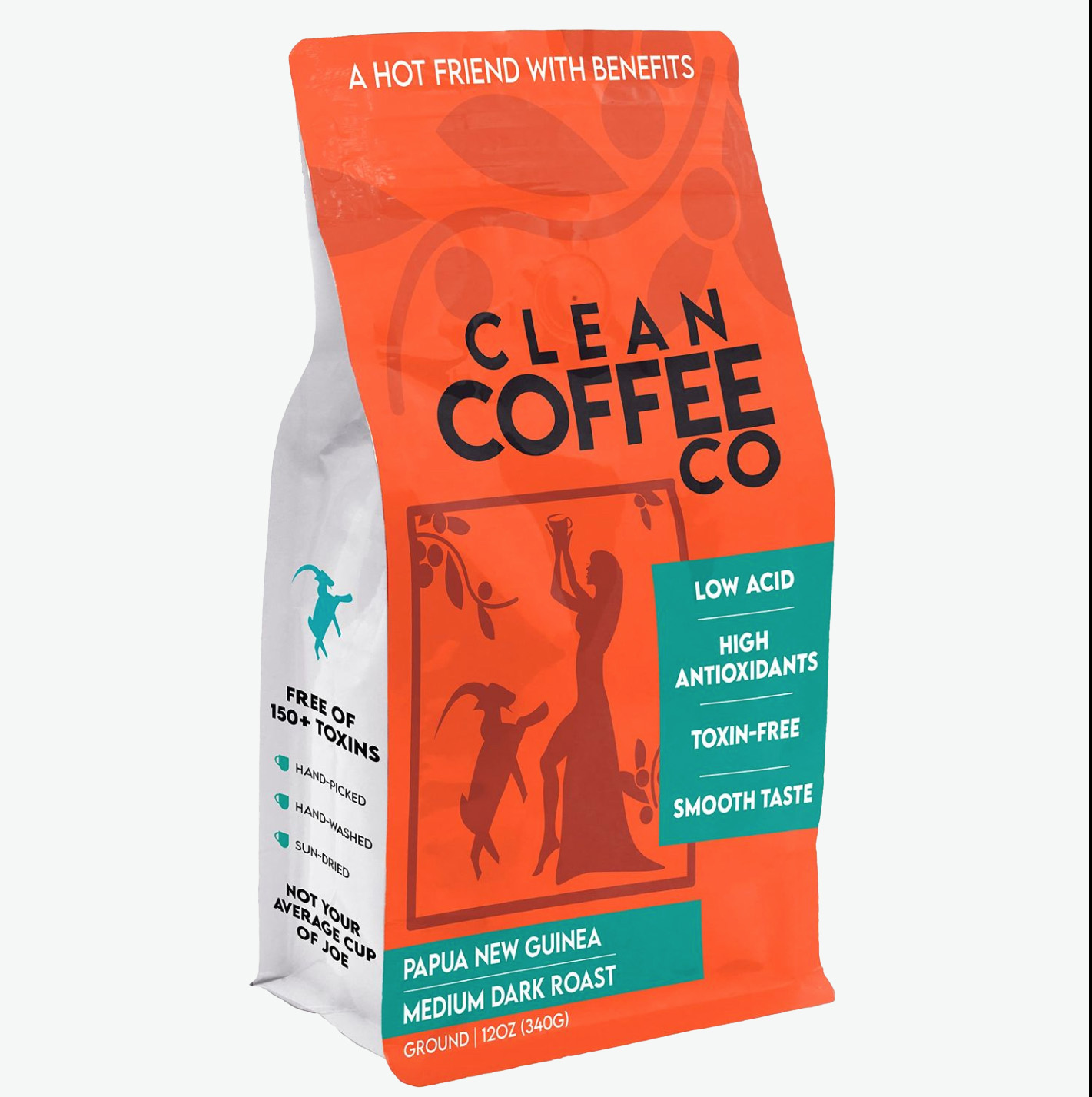
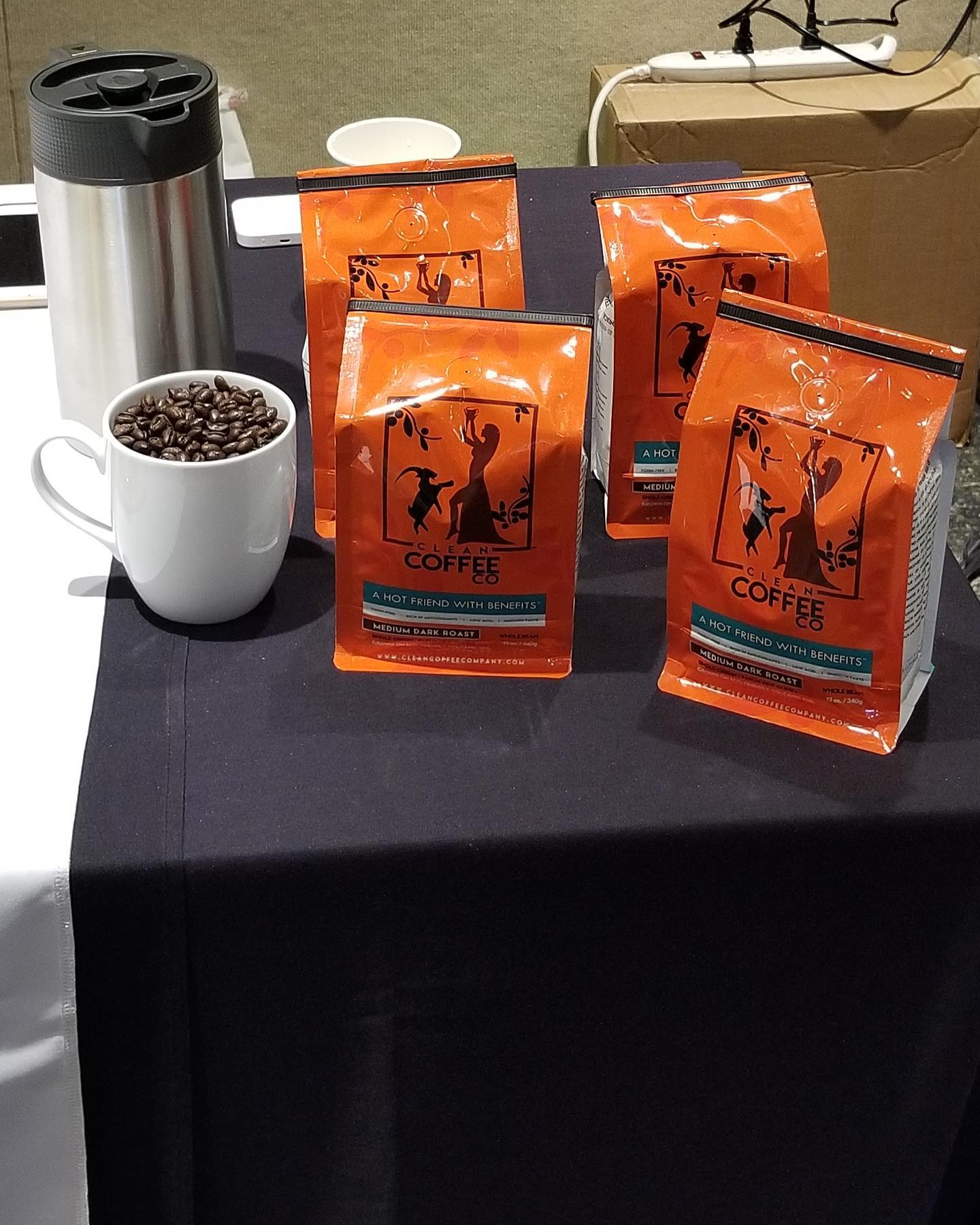
2. Holistic Roasters
Beans Sourced From | Single estate regenerative farms
Certifications | USDA Organic, Specialty Grade, Demeter-certified Biodynamic, Ecocert
Price | $20 for 300 g (10.6 oz) with 8 different grind options; discounted subscriptions ( up to 20%)
Holistic Roasters grows all of their specialty grade, single origin Arabica coffee beans using regenerative organic farming practices that improve soil’s natural fertility, enhance watersheds, and increase biodiversity while eliminating the need for pesticides, herbicides, fungicides, and chemical fertilizers. Beans are shade grown, roasted on Probat coffee roasters custom-spec’d by Scott Rao, and shipped within one week of roast date in 100% compostable packing (including the degassing valve and resealable zipper).
Holistic’s coffee is specialty-certified by the SCAA (Specialty Coffee Association of America) who inspect the coffee for defects and assign scores based on things like aroma, flavor, body, and acidity. They are also Biodynamic Certified, a stringent certification process that surpasses what it takes to be organic (organic certification makes exceptions for the use of certain broad-spectrum natural pesticides). If you want to drink excellent coffee while promoting biodiversity and a healthy soil microbiome, this is your brand.
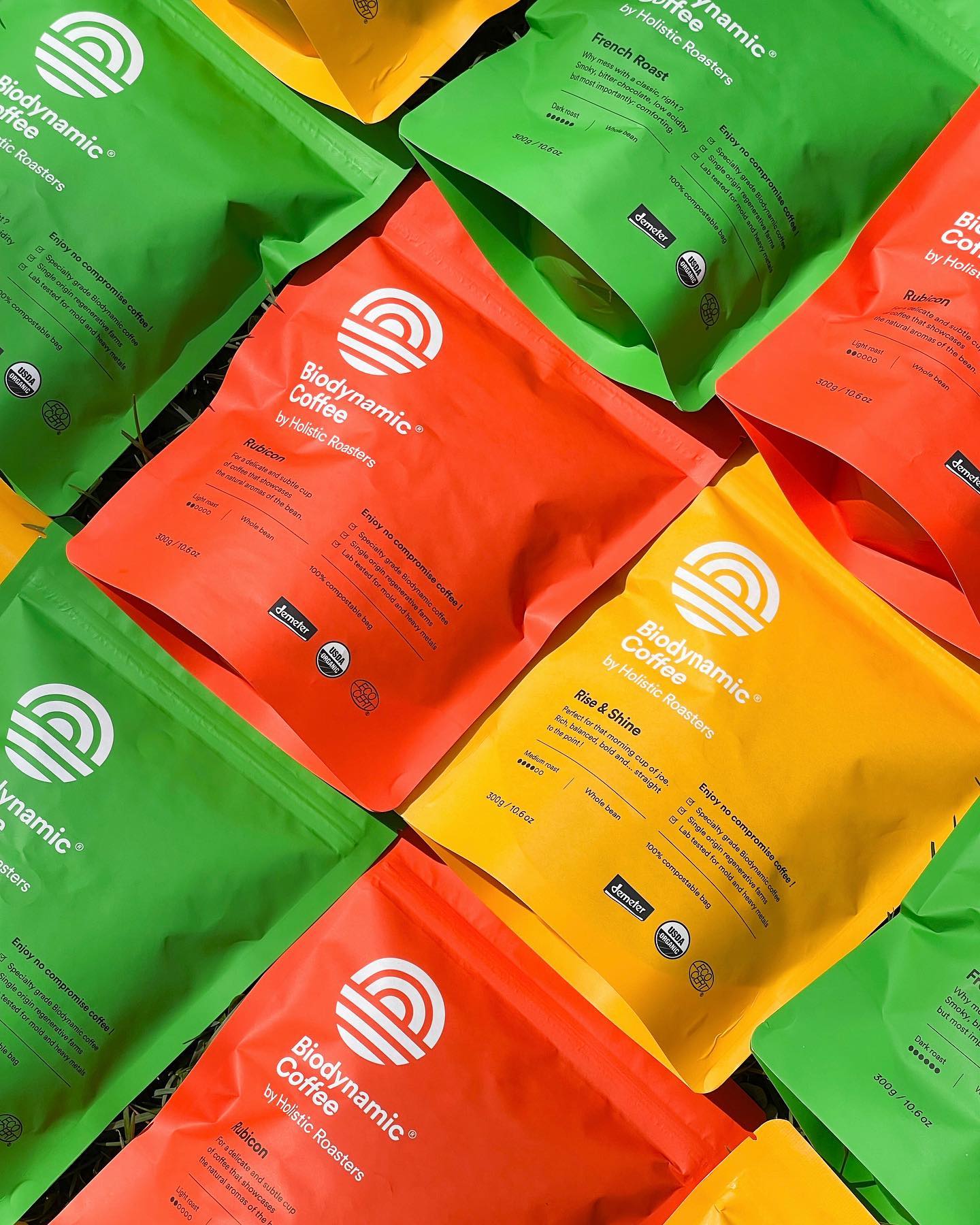
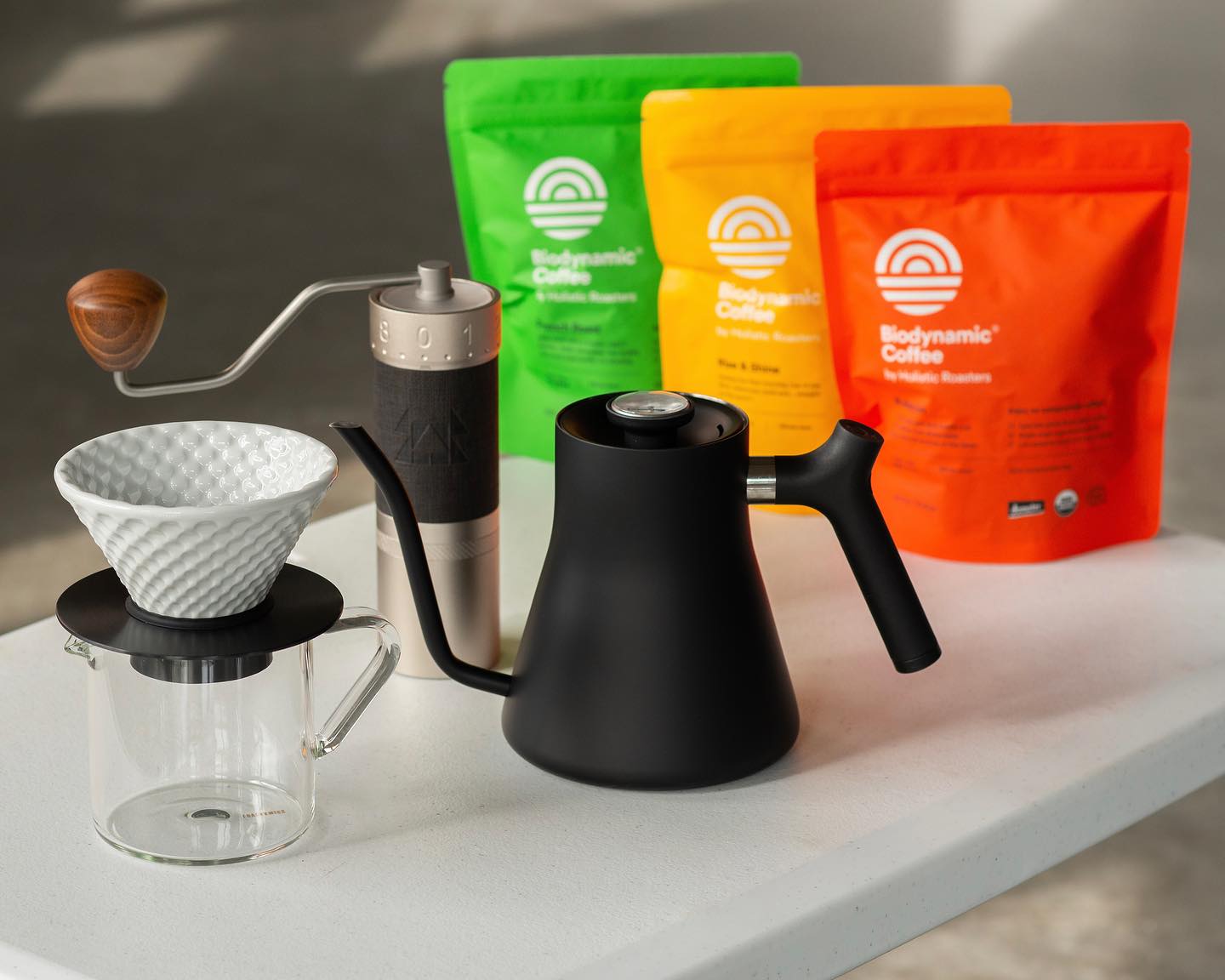
3. Purity Coffee
Beans Sourced From | Several single origin coffee farms
Certifications | USDA Organic Certified, Specialty Grade, Rainforest Alliance Certified, and most are Smithsonian Bird Friendly
Price | $24 for 12 oz; coffee pod and sachet options; discounted subscriptions (up to 20%); free shipping (orders of $60+)
Rated over 4.9 stars by more than 33,000 Purity Coffee drinkers, this pesticide-free organic green coffee has up to 2x the antioxidants of other leading brands. It’s third-party certified as organic, sustainable, and Specialty Grade, something only about 1% of the coffee produced worldwide can claim. They rigorously test to eliminate mycotoxins, comply to strict manufacturing practices to avoid contaminants, roast to minimize unhealthy byproducts (like acrylamide), and nitrogen-flush their packaging to maximize antioxidants.
With fun names like Calm, Protect, Ease, and Flow, the brand prides themselves on a transparent process from start to finish, publishing how their coffee is farmed, processed, roasted, and packaged, including their lab test results and sustainability efforts. Their mission is to improve the world’s health through regeneratively or biodynamically farmed coffee high in CGA and nutrients, and free of defects and mycotoxins. Mission accomplished.
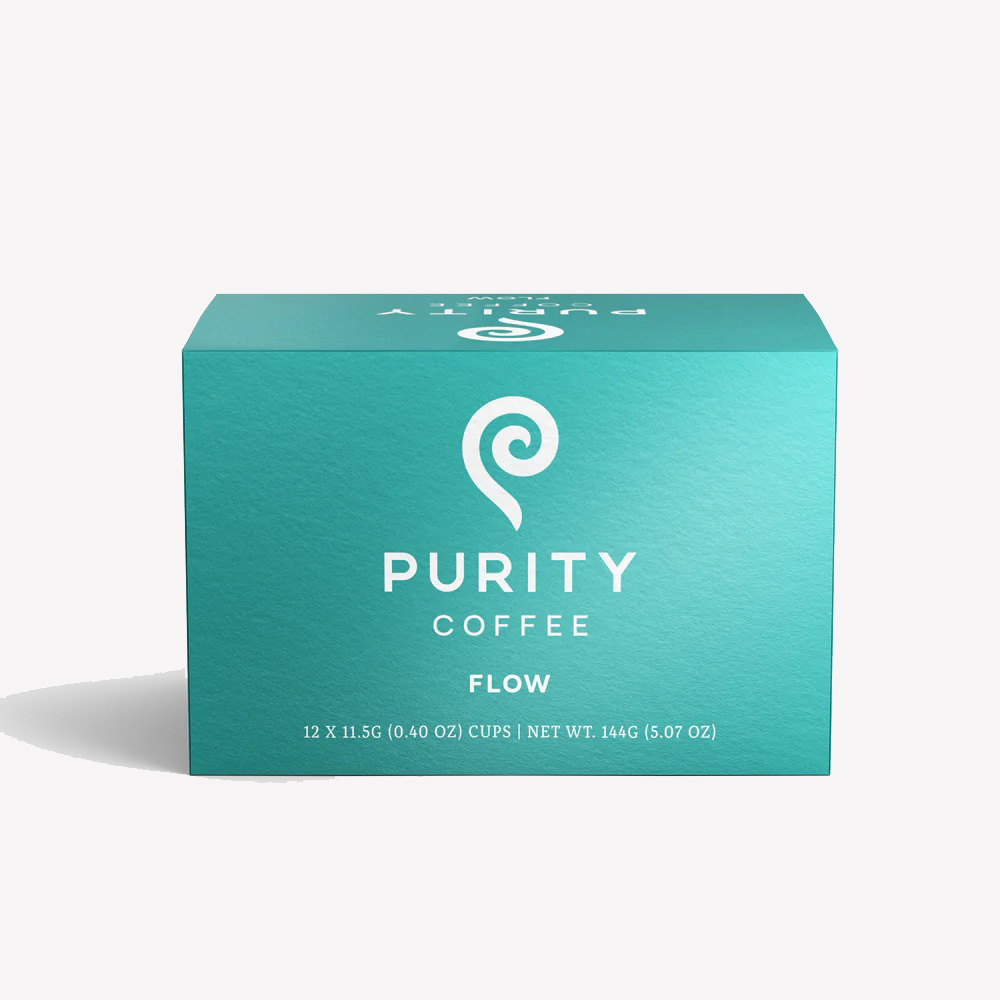
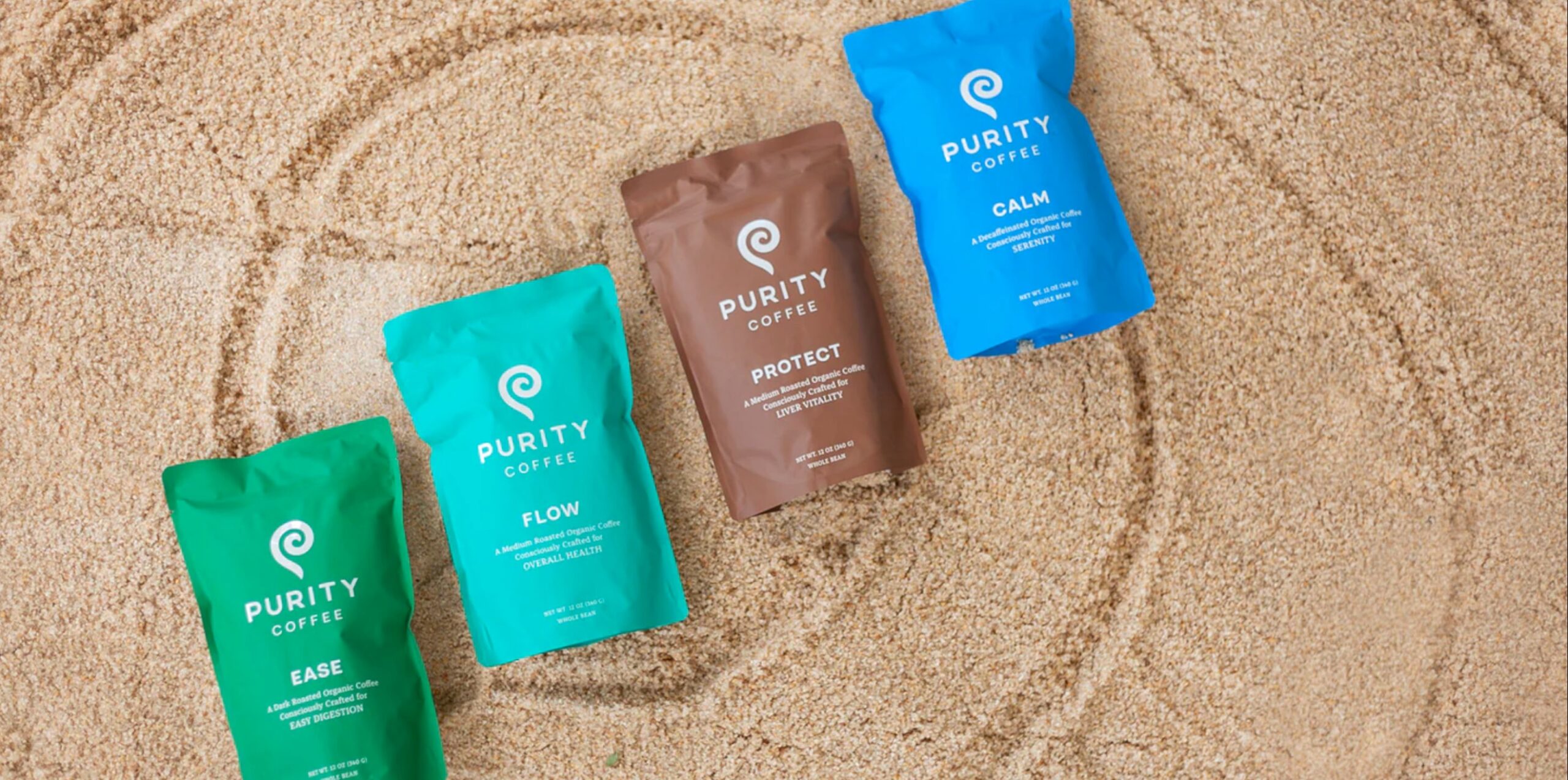
4. Fabula
Beans Sourced From | Small farms in small batches, mostly from Latin America
Certifications | USDA Organic Certified, Non-GMO
Price | $30 for 12 oz; 50% off for first time customers; discounted subscriptions (up to 35%); always free shipping
With over 3,254 five star reviews, Fabula Coffee’s certified organic coffee has been profiled by major news networks, including ABC, FOX, and NBC. They shade grow their beans at high altitudes, single-sourcing from some of the most unique and remote farms on the planet, with their best-selling coffees coming from Peru, Colombia, and Mexico. Fabula rigorously tests for over 350+ toxins and chemicals, resulting in a low-acidity coffee that won’t give you reflux or stomachaches. Because coffee peaks in flavor and aroma about 6-9 days after roasting, they roast and ship three times a week, resulting in perfect flavor every time, all the time.
They offer whole bean bags in light, light-medium, medium, dark, and decaf options, flavored coffee in vanilla, hazelnut, buttery caramel, and chocolate, as well as K-pods, and a recently released collagen coffee creamer. Fabula guarantees the superiority of their coffee with a no questions asked, no need to return anything, 30-day money back policy on up to three bags or two pod boxes if you aren’t completely satisfied with the upgrade in your coffee ritual. They believe everyone deserves to enjoy pure, clean, and healthy coffee, all for less than $1 per cup.
Bonus: they partner with One Tree Planted to plant a tree for every purchased pack of Fabula coffee.
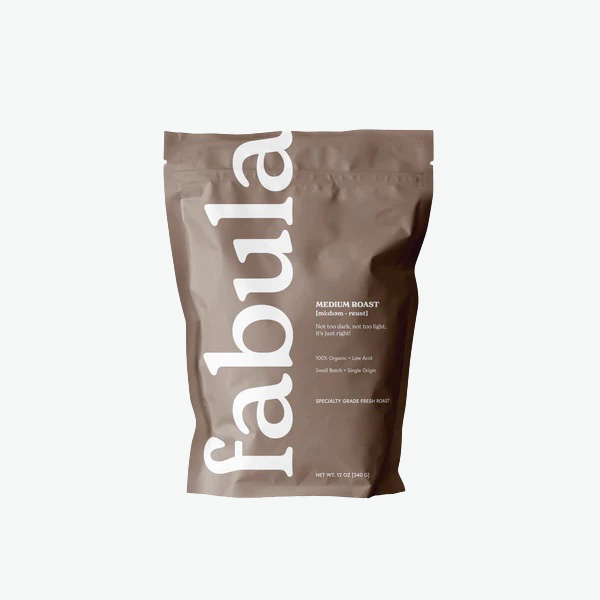
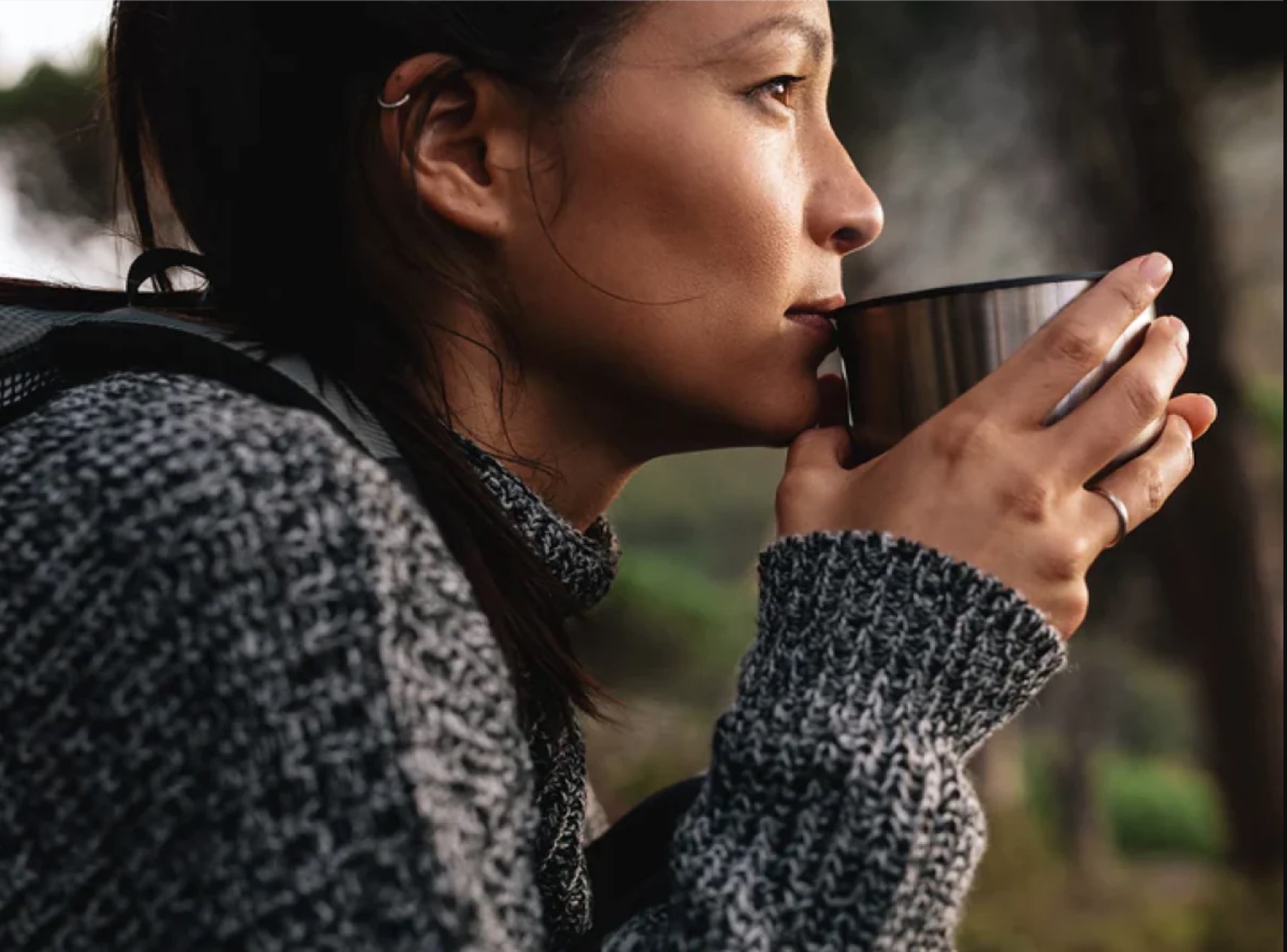
5. Kion Coffee
Beans Sourced From | Sustainable coffee cooperatives in Honduras and roasted in the foothills of Boulder, Colorado
Certifications | USDA Organic Certified, Specialty Grade
Price | $24 for 12 oz; discounted subscriptions (10%)
With over 97% of the world’s coffee grown as a commodity crop sprayed with pesticides to maximize yield and stored in ways that encourage mycotoxin growth, it takes a different kind of vision to make a different kind of mission. Enter Kion.
Kion built their reputation making premium, clean, research-backed supplements and foods, specifically amino supplements. Now they’re offering Kion Coffee, a specialty grade, ethically sourced, shade grown, fair trade, 100% organic Arabica bean grown and harvested from sustainable coffee cooperatives in Honduras. They keep it simple with two products: a medium roast with notes of sweet apple, marzipan, baking spices, and dark chocolate, and a dark roast with caramelized sugar, dark chocolate, and toasted hazelnuts. Their medium roast also comes decaffeinated, using a chemical-free Mountain Water Process. All products are sealed with a nitrogen-flush 24-48 hours after roasting so it comes to you as fresh as fresh can be. And of course they rigorously test for mycotoxins and all other contaminants.
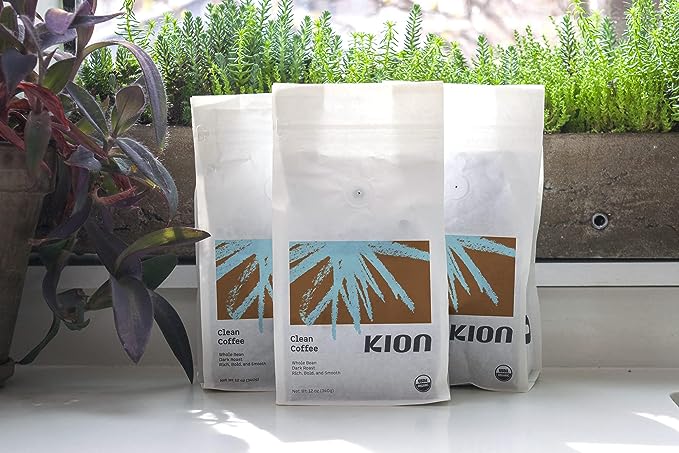
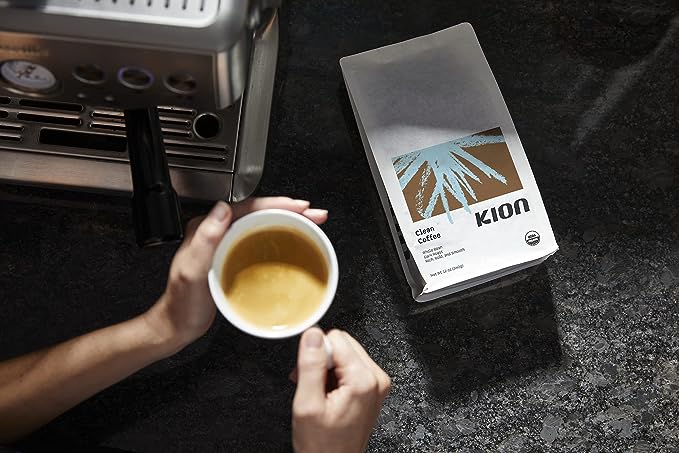
Featured image is from Holistic Roasters
